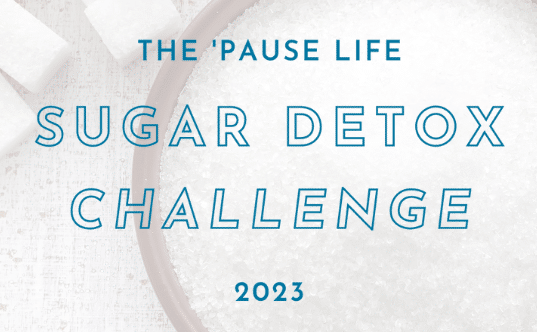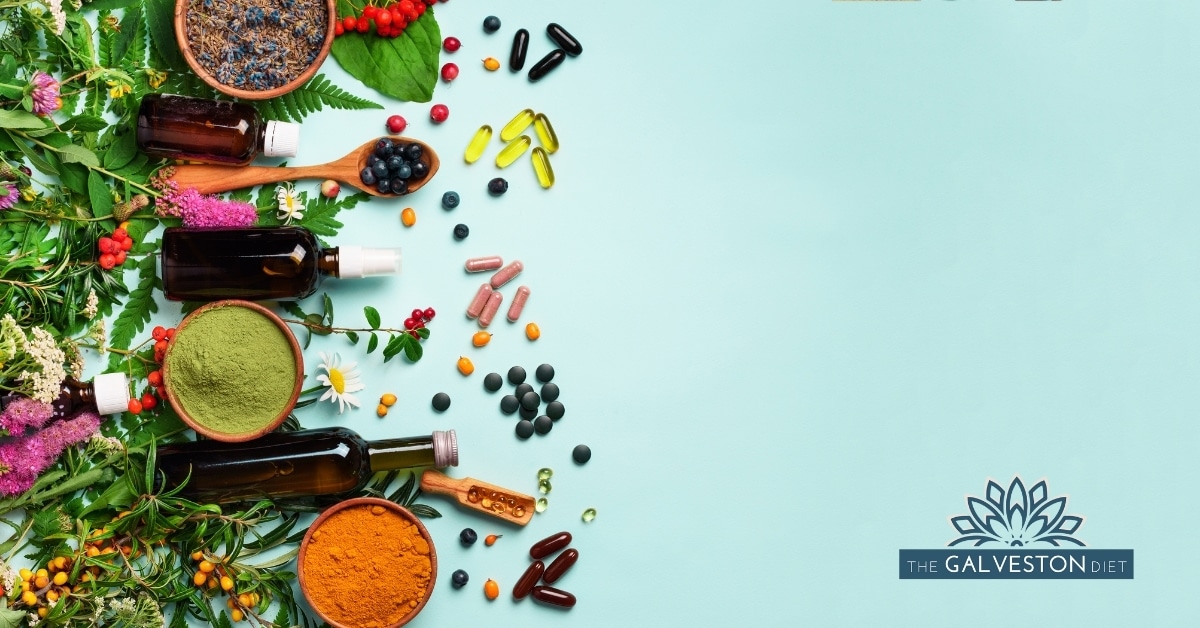It is a pretty common phrase these days – “sugar is bad for you.” One that you hear over and over again…
But why? Why is sugar so bad for you? Is there any merit to this statement?
Absolutely. Besides the weight gain that is typically associated with an increased intake of added sugars, the risk of disease, primarily type II diabetes and heart disease, increases as well.
The increase in sugar consumption, across America, occurred in conjunction with the need for quick, easy, processed foods.
Added sugars are primarily consumed via sweet products (examples include chocolates, cakes, breads, sugar, jelly, etc.), then beverages (sodas, including those labeled “Diet,” sport drinks, fruit-flavored drinks, vitamin-enhanced drinks, sweetened tea and coffee), and finally dairy products (flavored milk/creamer, or milk alternative products).
Also, unexpected culprits of added sugar are marinara sauce, peanut butter, chips, crackers, you name it!
Let’s clarify one thing first – we are talking about added and artificial sugars, NOT natural sugars. Fructose, found in most fruits, especially berries, is one of the main culprits we will be discussing today. It is usually added in the form of High Fructose Corn Syrup. Fructose is only harmful to your health when manufactured and processed. Perhaps slightly confusing, but the main takeaway is that naturally occurring sugars consumed in whole foods are not harmful to your body.
Below are 7 of the main reasons why sugar is bad for your health, especially as you age:
1. Weight Gain
Obesity is associated with increased amounts of sugar intake.
Leptin (the satiety hormone) resistance occurs when sugars, specifically fructose, are consumed in excess; this can be detrimental to your overall health and body weight. is a hormone predominantly made by fat cells and enterocytes in the small intestine that helps to regulate energy balance by inhibiting hunger, which in turn diminishes fat storage in adipocytes.
I would specifically like to talk about beverages containing a large amount of added sugar. A recent study found that artificial fructose, primarily found in sugar-sweetened drinks (sodas, juices, and sweet tea), increased plasma insulin levels more than glucose, which in turn led to greater brain responses to food.
As a result, participants that ingested fructose, as opposed to glucose, had more hunger, a greater desire for food, and were more likely to give up long-term monetary rewards to obtain immediate high-calorie food. Again, this reiterates the saying “sugar is more addictive than cocaine” because as shown, added sugars activate brain regions involved in attention, reward processing, and feeding behavior.
You tend to make worse dietary choices when your brain is “under the influence” of sugar – leading to inevitable weight gain
Also, these sugary beverages do not curb your hunger by any means – therefore, you tend to either drink more of the given beverage of make bad dietary choices as you brain gives in to “cravings” a whole lot easier.
In addition, high consumption of sugary beverages has been specifically linked to an increase in visceral fat. What is visceral fat you may ask? BELLY fat. For those of us in menopause this is a “double whammy” as our hormones are already driving an increase in belly fat during this stage in our life. Research quite literally shows that those who consistently drink sugary beverages weigh more than those who do not.
2. Increases the “Speed” of Cellular Aging
Time to put your thinking caps on and go back to high school biology — telomeres are structures on the very tips of chromosomes, which house all of your genetic information. Basically, they are protective caps that keep the composition of the chromosomes intact and unaltered, as doing so would lead to the formation of disease. As humans age, telomeres naturally and continually shorten – as a result, mistakes are made when our DNA replicates as the cells grow and divide. Hence, the aging process is in full swing. This process appears to be exquisitely sensitive to nutritional choices.
Although this is a completely natural, inevitable process, unhealthy lifestyle, specifically dietary, choices and habits can speed up the process described above. In fact, consuming high amounts of sugar was associated with shorter telomere lengths – absolutely fascinating! Does this mean that if you cut out all added sugars you will cease to age? NO. But, you will likely be slowing down the speed at which your body and cells are aging.
3. Drains Your Energy
I am sure many of you, myself included, have experienced a “sugar high.” When large amounts of sugar are consumed in a short amount of time, your blood sugar, and insulin levels, spike. You feel energized for a while but then… the sharp, drastic decline in blood sugar shortly follows – the crash.
Constantly having these swings in blood sugar levels inevitably causes major fluctuations in your energy levels. In the long term, this is not healthy for your body, especially as you age. You will start to continually feel drained, tired, fatigue, etc.

Are You Ready To Break Up With Excess Sugar?
4. Increases Risk of Disease
Type II Diabetes:
There is a clear link between excessive sugar consumption and risk of developing Type 2 Diabetes.
When your body is continually exposed to high blood sugar levels, the more likely you are to develop insulin resistance.
Insulin is a hormone that regulates your natural blood sugar levels. Once your body becomes resistant to this hormone, you cannot effectively maintain healthy blood sugar levels, which leads to the development of type II diabetes. In fact, an extensive study examining 175 countries revealed that the risk of developing type II diabetes increased by ~1.1% for every 150 calories consumed via added sugar (AKA: 1 can of soda) per day.
Heart Disease:
Heart disease is currently the #1 cause of death worldwide. High sugar diets are associated with obesity, and increased inflammation, elevated triglycerides, high blood pressure, and elevated blood sugar levels – all of which are extreme risk factors for developing heart disease.
A great example of this fact was a study in 2014 that analyzed the health data of 30,000 US adults, comparing the average percent of calories from added sugar. Those who’s added sugar consumption was 17-21% of their total calories had a 38% greater risk of dying from heart disease when compared to those who consumed 8% or less.
Fatty Liver:
Fructose, the simple sugar we have been referring to often, is solely processed in the liver; this is significant because glucose, and other sugars, can be broken down by cells in the body. The liver automatically converts fructose to glycogen, a way for energy to be stored in the body. This is great in theory, except the liver can only store so much glycogen. Once this “cap,” if you will, is met, the liver begins to turn the excess glycogen into fat that is stored on the liver. This leads to the development of non-alcoholic fatty liver.
Cancer:
The primary reason excess sugar consumption leads to an increase in the risk for developing cancer is that sugar increases the likelihood of obesity, inflammation, and insulin resistance. These three things are huge risk factors for cancer development. One study found that women who consumed sweets more than 3 times per week were 1.42 times more likely to develop endometrial cancer than those who consumed sweets less than .5 times per week. It is important to note, however, that the exact link between added sugar consumption and cancer is ongoing; more research and studies need to be conducted to fully understand this complex relationship.
5. Increases Skin Aging Process
I know I have your attention with this one! Wrinkles are a natural sign of aging… they will eventually, inevitably appear, regardless of your health. However, poor food choices can worsen wrinkles and speed up the skin’s aging process.
Consuming a diet high in refined carbohydrates and sugar leads to the production of advanced glycation end products (AGEs) – a long name for a reaction between sugar and protein. It is known that the production of AGEs increases as we age, however, it has recently been suspected that these products play a key role in the aging of the skin by damaging collagen and elastin. Both of these proteins essentially “stretch” the skin to allow for youthful, tight skin.
A study of middle-aged women (ages 40-74) showed that women who consumed more carbohydrates and added sugars had a more wrinkled appearance than women on a high-protein, lower-carb diet The conclusion being that a lower intake of carbs was associated with a better skin-aging appearance.
6. Increases Risk of Depression
It is a well-established fact that a consistent, healthy diet can help improve your mood. On the flip side, a diet that continually consists of processed foods and added sugar is associated with a higher risk of depression.
High sugar diets cause one’s blood sugar to constantly fluctuate; as a result, neurotransmitters are continually dysregulated and inflammatory responses are constantly signaled “ON.” Needless to say this is not ideal for your general health or for your overall mental health.
7. Acne
In general, foods with a high glycemic index are associated with a higher risk of developing acne since they raise your blood sugar more rapidly than other foods.
The reason this is relevant to acne formation is that when blood sugar and insulin levels are high, the secretion of androgens is increased as well as the production of oil and inflammation – the final result? Adult acne! Interestingly enough, acne in rural communities that do not have access to processed foods is almost non-existent, across the whole population. Compare this with the high prevalence of acne in urban, pro-inflammatory societies.
Mary Claire Haver, MD






